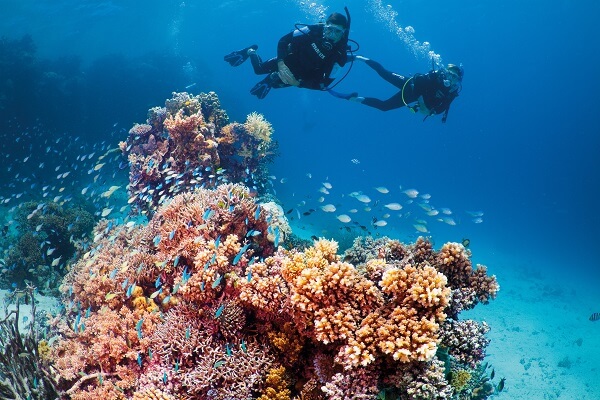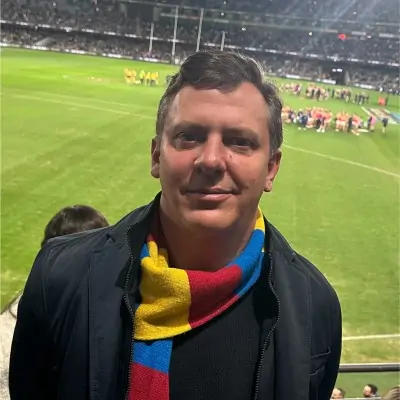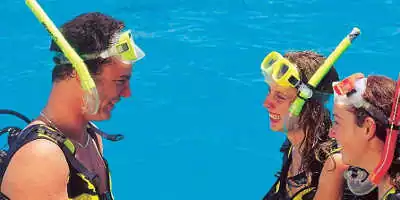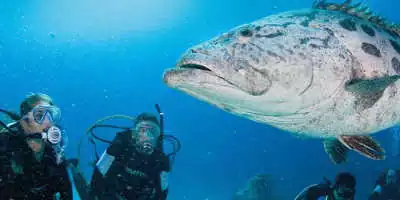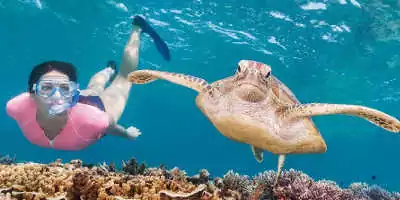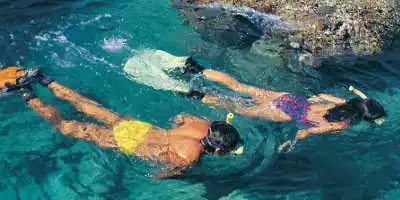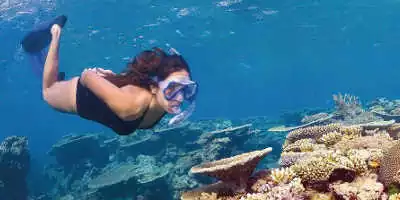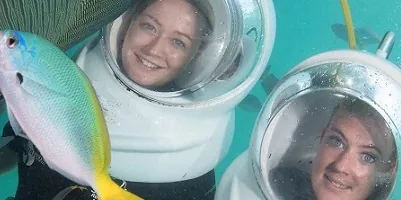
How old do you have to be to scuba dive in the Great Barrier Reef?
Written by: Cameron Ward
Published: 09/28/2022
Reading time: 4 mins
The Great Barrier Reef is one of the most impressive displays of nature you will ever see. It is the largest reef system in the world. There are ample reef locations to get in the water and discover the vibrant coral and marine life for yourself.
The most popular activity on the reef is snorkeling, as it’s an easier option and special experience for the whole family. A lot of travellers love to experience scuba diving for the first time in the Great Barrier Reef due to its shallow waters and the chance to find Nemo. Many tours to the reef will include a beginner’s dive in the price. You will learn quickly how to dive further below the surface as you make your way to the reef.
If you’re travelling to the with kids, you might be wondering if they’ll be able to give it a go, too. Given the higher risks associated with scuba diving and heading further into the deep water, there are of course age and other limitations with this activity you should be aware of.
Kids must be 12 years old or over to scuba dive in the Great Barrier Reef
Given the reliance on oxygen tanks and a strong swimming ability, kids must be 12 or older to take part in the introductory dive and underwater adventure. When diving for the first time, professional instructors will talk through every aspect of the dive. They ensure you are comfortable and confident before fully committing. If you or your child aren’t confident – your diver will advise you to have a go at snorkeling instead.
Kids aged 10 to 12 can get certified to scuba dive, however this won’t occur on a day trip to the Great Barrier Reef. Only beginner/introductory or experienced dives are available.
Kids aged between 10-12 are only allowed to dive to a maximum depth of 12 meters. Kids aged 12 and older can go deeper to 18 meters. Regardless of age, all children must and will be always accompanied by an experienced diver or diving instructor.
Age isn’t the only limit for scuba diving
There are a few other reasons one may not be advised to dive which applies to adults also. Asthma, epilepsy, ear infections, pregnancy and high blood pressure are examples of reasons to skip the dive. Australia takes ocean safety seriously and scuba diving is heavily regulated. Rest assured you will only be permitted to dive if it is safe for you to participate. Questionnaires are required and you should be honest here – you don’t want to put your health or life at risk.
You can scuba dive year-round at the Great Barrier Reef
Except for in extreme weather cases like storms that make it unsafe, that is. Given the location, the water is always warm and inviting for a scuba dive. You can visit any time of year. Storms are more frequent in the summer months. Conditions are best in the winter months from May to October.
If you and your kids do get to experience the adrenaline of scuba diving in the Great Barrier Reef, it is bound to be a highly enjoyed and loved part of your trip to North Queensland. When the correct precautions are taken and guidance is taken, there is no reason not to give it a go and tick scuba diving (in a UNESCO World Heritage site no less) off the bucket list!
And don’t stress if you’ve got little ones under 12, or simply aren’t interested in diving – there are many activities to do. Try snorkelling or exploring the islands and beaches of the reef. Experience marine life touch pools and watch what is happening below from a glass-bottom boat.

